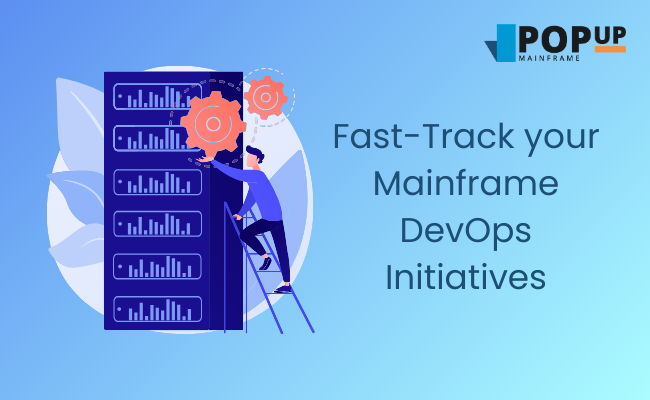DevOps on the mainframe is particularly hard
In IT, mainframe is often the last piece to achieve automation. Many organisations have established automation and DevOps ways of working for the distributed teams, but haven’t managed to apply this to the mainframe areas yet.
As we see it, the main challenges in adopting DevOps for mainframe are:
- Lack of dev and test environments in which to trial automation, new ways of working and new tools.
- Culture, mindset, and ways of working changes (and ensuring those are sustained in the long term).
- Inability to innovate due to locked down systems and timeboxed access to the physical mainframe.
- Governance processes which are entrenched and inflexible.
- Mainframe skills shortage and difficulty attracting new joiners.
- Create a right-sized virtual z/OS instance with the right data and applications to suit the use case (not just a full copy of the LPAR).
We developed PopUp to help solve some of these pressing business problems.
At PopUp, our mission is to empower mainframe businesses to deliver changes faster, cheaper and better with on-demand environments for dev and test. We see this as a necessary pre-requisite for organisations to move into this final ‘DevOps frontier’ (where ALL teams, including mainframe, can embrace DevOps). This is necessary for businesses to truly achieve their agility aspirations at all levels of the business.
Find out more information about PopUp here.
How does PopUp fast track mainframe DevOps initiatives?
PopUp enables an organisation’s mainframe DevOps initiatives to take off, in a number of ways. PopUp enables companies to eat the elephant of mainframe DevOps by starting small and making progress quickly.
 A. Pipelines & Automation
A. Pipelines & Automation
Automation and pipelines are a must for any DevOps journey. PopUp aids the implementation of automation and pipelines by:
- Enabling users to spin up and manage fully functioning z/OS instances through a pipeline via RESTful APIs.
- Making it easy to align mainframe pipelines with pipelines for distributed systems.
- Providing mainframe teams with automation tools pre-installed and pre-configured on the PopUp.
- Using the built-in test automation tools, developers can write unit tests and run them through automation in a PopUp.
- Providing test automation tools which can be used to build a full regression test pack.
- Making it easy to include code validation in pipelines.
- Integrating out of the box with Git.
B. Increase Productivity by Giving Developers Mainframe On-Demand
The main bottleneck in mainframe delivery is lack of mainframe environments. This causes a huge knock-on effect when teams have limited slots on the physical mainframe, and have to schedule those far in advance. PopUp delivers z/OS environment capacity to teams at the speed its needed. This newfound availability of mainframe instances in turn enables fundamental changes to the teams’ ways of working.
Team members no longer need to wait days or weeks for their slot on the mainframe, instead they can do their work as needed. Once the biggest blocker is removed, wait times and idle time are reduced through every stage in the delivery process. This has a massive impact on productivity, as well as team satisfaction.
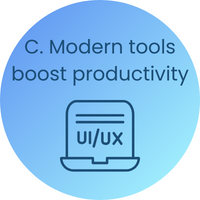 C. Modern tools boost the productivity of all team members
C. Modern tools boost the productivity of all team members
There are more and more tools available which allow developers to interact with mainframe systems without ever logging into a mainframe green screen. Modern mainframe tools provide a host of benefits including intuitive, easy-to-use interfaces, automatic code completion and syntax checks, debug tools, automation, and instant feedback.
However, it’s not always easy to adopt modern tools on the physical mainframe. On PopUp you are free to install or use any modern mainframe tools you wish and experiment in an isolated, completely risk-free environment. Mainframe teams can then realise the benefits of modern mainframe tools with no risk to the physical mainframe. Modern tools not only improve productivity of new joiners (who can be very productive using intuitive tooling even without prior mainframe experience), but vastly increase the productivity of existing team members too, who experience the same benefits.
 D. DevOps with Compliant Data
D. DevOps with Compliant Data
One challenging element of ephemeral environments is getting the right data. Using PopUp in combination with Delphix, production data can be masked and moved onto the PopUp. This gives developers and testers the ability to test against fully compliant production-like data. The benefit of using prod-like data for testing is hard to overstate – it facilitates better test scenario creation and increased test coverage.
Another powerful feature of Delphix & PopUp is creating a Gold Copy image which includes masked data. This Gold Copy can be cloned as needed to provide a full z/OS instance with compliant data, ready to go. The test data can also be refreshed easily, ensuring that dev teams always have recent, prod-like, compliant data.
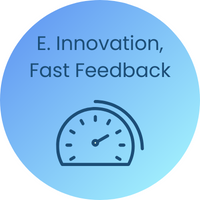 E. PopUp is a catalyst for mainframe innovation and fast feedback!
E. PopUp is a catalyst for mainframe innovation and fast feedback!
PopUp brings increased opportunity for innovation to mainframe teams since they can work and experiment in 100% safe, disposable environments. In a risk-free mainframe sandbox, you can be confident in experimenting with new capabilities which cannot be risked on the physical mainframe. This gives the opportunity for fast feedback on new tools and capabilities without needing to install anything on the physical mainframe.
Using Delphix alongside PopUp allows users to provision copies/clones of a PopUp, snapshot the instance during testing, then just rewind / forward-wind to any of the snapshots as needed. There is no need to worry about breaking the PopUp. This gives app teams tremendous flexibility and independence to develop, test and deploy changes faster.
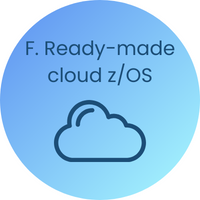 F. Ready-made cloud z/OS environments
F. Ready-made cloud z/OS environments
PopUp is available to buy directly through Azure MarketPlace and can be up and running in less than an hour. This provides near-instant z/OS compute capability in the cloud to service DevOps initiatives.
PopUp is also compatible with other cloud environments.
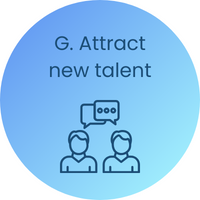 G. Accelerate your DevOps journey with new talent
G. Accelerate your DevOps journey with new talent
Skills shortage is a big challenge in the mainframe space and can derail DevOps initiatives. Mainframe businesses need to attract a new generation of mainframe engineers, who usually want to use cutting-edge mainframe tooling, like desktop IDEs and automation tools.
Modern mainframe tools come out of the box with PopUp. So PopUp simultaneously appeals to traditional mainframe engineers who may prefer green screen (and enjoy the ability to spin up their own mainframe environments on-demand), as well as new mainframe engineers who prefer modern tools. Using PopUp, you can hire people with no green screen experience and be confident that they will still be able to integrate with and develop mainframe systems.
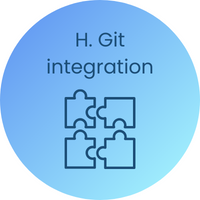 H. PopUp – Git integration is a cinch
H. PopUp – Git integration is a cinch
Most DevOps initiatives rely heavily on modern version control tools. Git is regarded by many as the best, easiest to use, and the most effective one available and it’s everywhere in the world of distributed applications – but not yet for mainframe. PopUp enables Git integration with mainframe source out of the box, giving yet another boost on your DevOps journey.
How does PopUp help to create real, lasting DevOps cultural change?
This is often one of the trickiest parts of a DevOps transformation journey. It can be particularly difficult in mainframe teams which may have been operating in similar ways for decades and have no appetite to change.
It’s easier to make incremental cultural changes than forcing a completely new way of working in one go. PopUp provides the vehicle for this as users can adopt PopUp at their own pace alongside their existing ways of working on the physical mainframe.
PopUp empowers users as they benefit from the self-service capability, and that results in appreciation and uptake from the mainframe teams.
PopUp gives extra features to boost you on your DevOps journey
One amazingly powerful thing about PopUp is that it provides capabilities which physical mainframes cannot. This opens the door for deeper innovation and new working practices:
- Replicate PopUps to create multiple z/OS clones including applications and data
- Deploy and tear down mainframe instances using APIs or pipelines
- Baseline and version PopUp instances
- Take snapshots of PopUp throughout projects using Delphix
- Return to a baseline (rewind), and fast-forward to snapshots
- Switch a PopUp off when it is no longer needed. When it is brought up again it is exactly as it was – there are no ongoing maintenance costs as you have for a physical mainframe.
Curious to know more about mainframe DevOps? Contact us to discuss.

